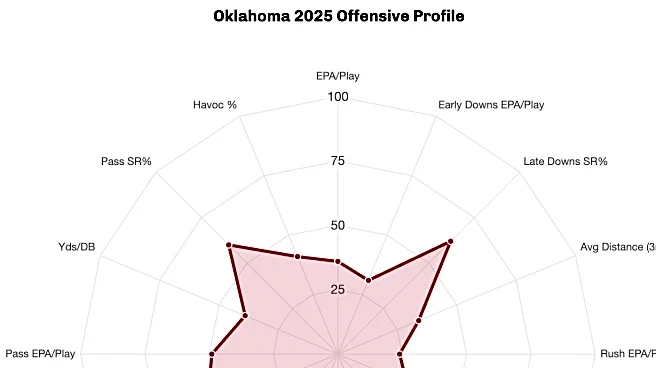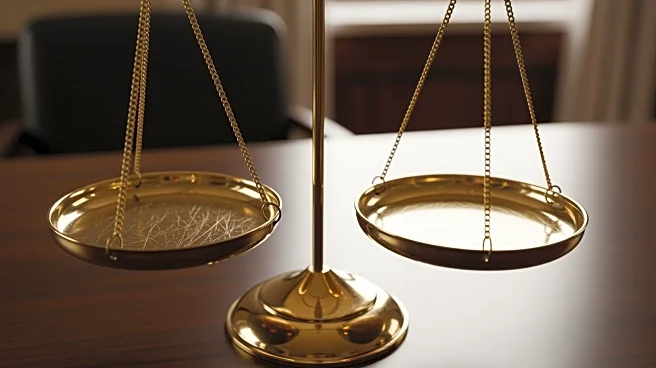Throughout the first six games of the 2025 season, Ole Miss’ defensive issues existed, but no opposing offense was capable of exposing them all for the entire game.
That changed in the seventh game when Georgia shined a light on them all. The Bulldogs, the most complete offense Ole Miss has played and probably will play, ripped Ole Miss’ defense apart to the tune of 43 points, 510 total yards, 6.4 yards per play, and 7 of 12 on 3rd and 4th downs.
Per the usual when Ole Miss loses the first game of
the year, the tiresome lamentations about coaches needing to be fired or not knowing what they’re doing were screamed from the rooftops. The same people who got the team to a 6-0 start (and owners of one of the best 6-year stretches in school history) became completely incompetent and unworthy of their jobs in the span of an afternoon in Athens.
I know that predictable response is not exclusive to Ole Miss fans, but it doesn’t make it any less annoying. However, the lamentation criers were right in that the defense was awful, but it wasn’t because Pete Golding forgot how to coach.
On that note, let’s perform an Honesty Check of the Ole Miss defense. If it sounds familiar, I’ve done this is the past, and the idea comes from a scene in HBO’s Vice Principals.
From 2023:
‘Vice Principals’ is part of the Danny McBride universe, and McBride and (Walton) Goggins play high school co-vice principals who want to nothing more than to be named principal after the current principal of their school retires. Oh, and they are deeply insecure people who don’t care for one another.
As the series progresses, Goggins’ character and his wife see a therapist to repair the damage he did to their relationship. The therapist encourages them to practice unconditional honesty, which leads to the Honest Check scene with his wife and mother-in-law (who lives with them).
Here’s that scene (language warning/mature subject/don’t play this around kids):
The point of this post is not to curse in all directions or turn into Goggins’ sociopathic character, but it’s to be unconditionally honest about the Ole Miss defense.
Honesty Check: They don’t have the Dudes™ to hang with good offenses
As Bill Parcells once said, there comes a time when you are who you are. After seven games, the Ole Miss defense is a defense that can’t:
- Sack the quarterback (99th in sack percentage)
- Generate negative plays (97th in havoc rate)
- Get teams in favorable 3rd down situations (61st in opponent yard/play and 102nd in average 3rd down distance)
The simple explanation as to why not is that 6 defensive starters from last year are in the NFL, and they weren’t replaced with guys who will soon be in the NFL.
Pete Golding and company brought in Da’Shawn Womack and Princewill Umanmielen via the transfer portal to reboot the edge rushers, and they missed on those guys. Maybe Womack and Umanmielen are a year away from making a leap, or maybe this is who they are. But right now, they don’t change games off the edge.
The younger interior players on the defensive line have shown themselves to be good players, but they’re probably a year away from possibly becoming consistently disruptive players. Senior Zxavian Harris has his moments, but consistency is also a problem.
Like the edge rushers, Golding and company missed with the transfer linebackers. Jaden Yates and Tahj Chambers have struggled, and TJ Dottery has Golding’s trust, but it’s clear his best role is a complimentary linebacker.
If I could ask Golding one question and he had to give an Honesty Check answer, it would be why hasn’t his front six matched last year’s production, as he believed would happen in this conversation with Chris Beard and again in his preseason media time. For him to say that out loud in front of cameras feels like he really believed it, but he was obviously wrong.
As for the back end of the defense, I wrote last week that it has actually held up well, given it was a major concern. But we saw Georgia challenge the corners in one-on-one spots and the results were not great. Not to mention several coverage busts involved safeties and corners.
That’s a long way of saying, against good offenses, they’re going to be overmatched. Against middling to bad offenses*, they’re good enough to get stops and not need the offense to score 45 points a game.
Instead of wailing and gnashing of teeth about Golding’s coaching acumen, the correct lamentations in Golding’s direction should be about personnel. He can have the right call every single time, but without Dudes™ when you’re going up against Dudes™, it doesn’t matter.
Now, he gets paid the big bucks, and part of that is roster management. He should be criticized for that*, but to his credit, I think he’s come up with a good solution for his personnel problems.
*Of course, there’s the darkest timeline in which maybe he did get the best available players to fit Ole Miss’ needs, but the overall defensive talent wasn’t as deep in the portal as past years and that becomes a trend.
Honesty Check: It sounds insane, but Golding’s approach makes sense
He knows he doesn’t have Dudes™ to dominate and create havoc, so, like any good coach, he’s changed his approach to compliment what he has. Ole Miss is now one of the more bend-but-don’t-break defenses you’ll see, as he tries to limit explosive plays and make offenses put together long drives.
The idea being, the more plays an offense has to run, the more likely they are to screw up and give the defense opportunities to get off the field or force field goal attempts. And through six games, it kinda worked!
The Arkansas game was hit or miss at times, and if Taylen Green had been more accurate on a couple of throws, Ole Miss probably loses. But the defense held Arkansas to 7 points in the second half, which is a good way to win games.
The biggest indicator Golding is all in on the bend-but-don’t-break approach is Suntarine Perkins’ role this year. Perkins is Ole Miss’ best pass rusher, and Golding has sacrificed that* to have him in coverage more in the name of limiting explosive plays.
*This probably also tells us what he thinks about other linebackers, safeties, and nickel defensive backs in underneath coverage.
This approach can be agonizing to watch at times, and, as Georgia showed, good offenses that don’t make mistakes will torch it. For Ole Miss though, the last five games of the regular season don’t feature any opposing offenses with Georgia’s talent and efficiency.
If Ole Miss were to make the playoff and face a good offense, things would probably need to change. But their best path to the playoff against what’s coming involves bend but don’t break.
Honesty Check: The remaining opposing offenses are more of the Ole Miss defense’s speed
I could write things here, but let’s turn to the advanced numbers.
Bill Connelly’s SP+ offensive rankings for Ole Miss’ last four FBS opponents (sry, The Citadel):
- Oklahoma – 39th
- South Carolina – 85th
- Florida – 64th
- Mississippi State – 42nd
For context, Georgia is 14th, LSU is 48th, and Arkansas is 5th.
Parker Fleming’s offensive ratings:
- Oklahoma – 42nd
- South Carolina – 80th
- Florida – 57th
- Mississippi State – 52nd
Georgia is 11th, LSU is 48th, and Arkansas is 9th.
Game on Paper’s expected points added per play:
Georgia is 28th, LSU is 54th, and Arkansas is 3rd.
And so on and so on, you get the idea. For amusement purposes, let’s look at the Oklahoma defensive profile:

Almost a perfect circle!
And now the Oklahoma offensive profile:

Lmao.
As bad as it was on Saturday against Georgia, the Ole Miss defense won’t face an offense like that again in the regular season, which will help offset lacking Dudes™. The goal is to do enough to get to the playoff, and the defensive approach in the first seven games should be enough to give them their best chance, assuming the offense doesn’t crater like it did last year.















